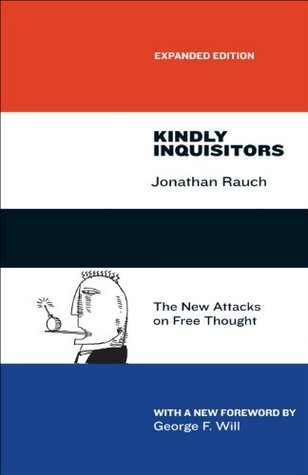More on this book
Community
Kindle Notes & Highlights
Read between
July 29 - August 28, 2020
epistemology—the field of philosophy that explores the foundations of knowledge—bolsters the argument for a regime of freedom of expression.
What epistemology, properly understood, teaches about how we acquire knowledge validates the premises of an open society.
is not wrong to say that all of Western philosophy is a series of footnotes to Plato. And it is right to say that Plato’s Republic, which is the foundational text of Western political philosophy, is a book about education. Citizens of a nation whose foundational document speaks of truths that are “self-evident” should understand that political philosophy is always, at bottom, about how we know things and about what we can know.
historicism. This theory holds that history has its own inner logic and unfolding laws of development. Progress, by definition, is that condition toward which history flows. Or, as Karl Marx thought, toward which it lurches through dialectical spasms as societies work out their contradictions, arriving at harmony.
The soft sort holds only that societies—their institutions and intellectual infrastructure—encourage in their members certain habits, mores, customs, and dispositions. Those, in turn, impart momentum to some social developments and directions rather than to others. Hard historicism is sterner stuff.
This little detour through intellectual history brings us to the American intelligentsia and to Jonathan Rauch’s inquisitors. In the past half century or so, the intelligentsia, especially its academic portion, has adopted an increasingly adversarial stance toward the surrounding society. This position is not because the intelligentsia has uniformly embraced historicism, hard or soft or in between. It is, however, because a substantial portion of the intelligentsia has adopted two assumptions. One is that this portion has a unique understanding of what constitutes progress, meaning what
...more
Most of Rauch’s “kindly inquisitors” do not speak the language of historicism—“false consciousness” and all that—and most of them probably do not know the pedigree of their
A very dangerous principle is now being established as a social right: Thou shalt not hurt others with words. This principle is a menace—and not just to civil liberties. At bottom it threatens liberal inquiry—that is, science itself.
This book is about the liberal social system for sorting truth from falsehood: arguably our greatest and most successful political system.
We have standard labels for the liberal political and economic systems—democracy and capitalism. Oddly, however, we have no name for the liberal intellectual system, whose activities range from physics to history to journalism. So in this book I use the term “liberal science,” for reasons to be explained later. The very need to invent a label for our public idea-sorting system speaks volumes about the system’s success. Establishing the principles on which liberal science is based required a social revolution; yet so effective have those principles been, and so beneficent, that most of us take
...more
Although it was often dismissed casually, their position in fact had deep philosophical strength. Science and skeptical inquiry are one path to belief about the world; looking in the Bible or consulting your guru is another. If both paths are subject to uncertainty—as skeptical science must admit!—
then why not present them both in the classroom, as alternatives? Why grant privileges? “Your belief in, say, Darwin’s theory rests, finally, no less on faith—faith in science—than does my belief in special creation; and so on what grounds can you claim a monopoly on truth, since my beliefs are held just as strongly and as sincerely as yours?”


